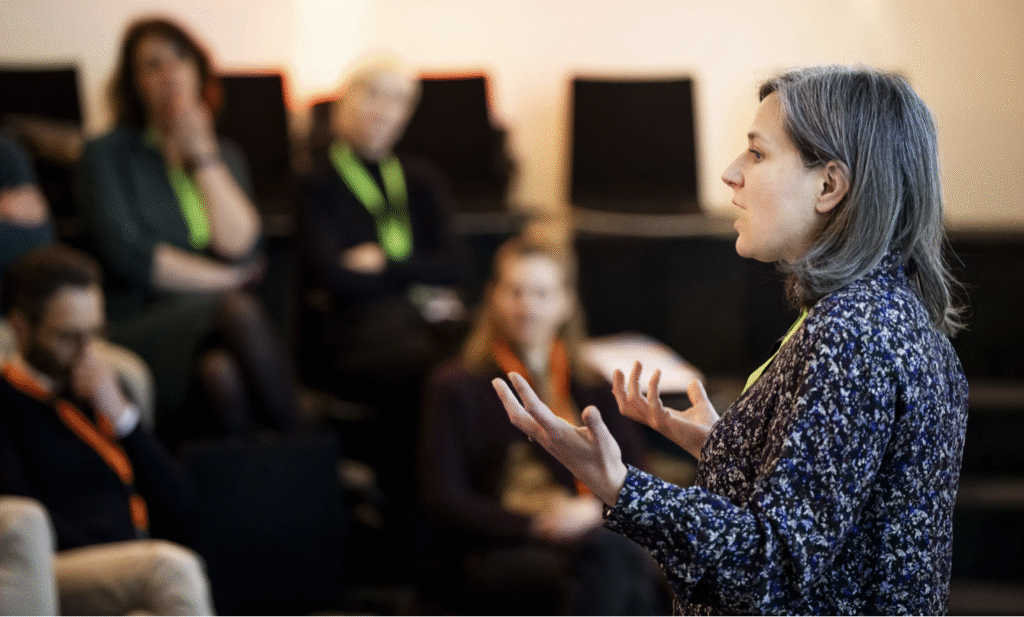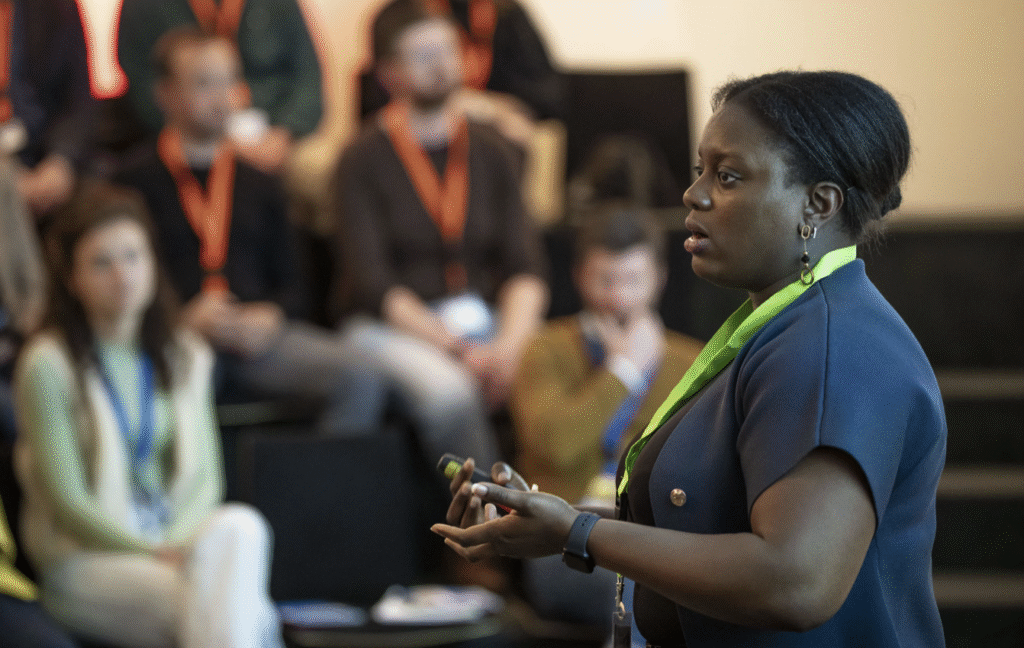On March 27, Dr. Katie Kuschminder and Dr. Sarah Adeyinka shared insights from the Reintegrate Study during the Science Day event in Utrecht, an initiative organized by the Netherlands’ Repatriation and Departure Service.
Reintegration Is Not The End: Insight

Insights from Dr. Katie Kuschminder’s Presentation on the Reintegration Study
At the DTenV Science Event, Senior researcher, dr. Katie Kuschminder presented findings from Reintegrate, her five-year ERC-funded project examining how reintegration governance shapes the experiences of returnees in Nigeria, Nepal, Serbia, and the Philippines. The research challenges the idea that return is the endpoint of migration, arguing instead that it should mark a new beginning.
She highlighted how reintegration success varies by context, with different actors playing key roles- grassroots organizations in the Philippines, foreign donors in Serbia, or the informal economy in Nepal. With over 400 interviews conducted, early results show there’s no one size fits all model: returnees’ outcomes are shaped not only by policy, but by their own resilience, networks, and the local environment.
She emphasized the need for clear policy goals, stronger local partnerships, and context-specific approaches. Reintegration, she argued, is a complex, multi-level process that requires coordination between international and local actors, realistic expectations, and sustained support.
Ultimately, she reminded us that reintegration is not about statistics, but about people. Returnees deserve more than just a ticket home, they deserve a fair chance to rebuild their lives.
Read more (in Dutch) here.
Reintegration in Nigeria: Tackling Trauma and Building New Beginnings

Insights from Dr. Sarah Adeyinka’s presentation on the Reintegrate Study, Nigeria findings
As part of the Reintegrate project (2021–2026), dr. Sarah Adeyinka explores the complex realities of reintegration in Nigeria, a key focus country due to its role as both a major origin and destination for migrants. Between 2021 and 2023, 3.6 million Nigerians left the country, many heading for Europe via Libya. However, for many, Libya becomes a trap marked by human trafficking and exploitation.
Drawing on 69 interviews with returnees (mainly from Libya) and 27 with stakeholders, her research reveals the deep challenges people face upon return. Shame, debt, and discrimination often greet those (especially women) who are seen as having “failed” abroad. Traumatic experiences, particularly human trafficking for sexual exploitation, leave lasting scars.
Sarah emphasizes that successful reintegration depends heavily on strong governance and collaboration across local and international levels. Above all, she advocates for more focus on mental health support, calling for the stigma around trauma to be broken so returnees can truly begin again.
Read more (in Dutch) here.
